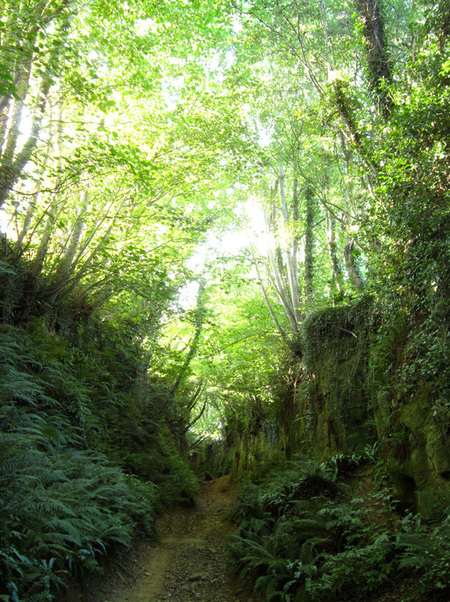“[The] English countryside [is] not only as a place of beauty, calm and succour, but also [...] a green and deeply unpleasant land.” Robert Macfarlane If you have stumbled upon this little blog before, you will know that over the past year or so I have developed an obsession with the contents of the article written by Robert Macfarlane (one of my favourite authors), "The eeriness of the English countryside". I have been using it as inspiration for my current projects The Right Place and Hell Lane. If you read my first two novels I Am a Muse and The Book of Thoth, you would definitely find elements of the English eerie peppered across the pages, especially in The Book of Thoth, in which I challenged myself to write a Gothic novel with a hearty nod to M.R James. After a few months during which I have been unable to focus on my writing, I have come back to the study of this fascinating cultural movement described as an "Occulture" in Macfarlane's text. I have read extracts of Macfarlane's essay at a few readings I have done as it offers a good definition of what I am trying to do with The Right Place. I would recommend you read the superb essay by Joe Kennedy "Terror in the Terroir: Resisting the rebranding of the countryside". The way a whole (rather unofficial) cultural movement can reclaim the countryside and use it as a tool and muse to create relevant, modern, engaged and engaging art (be it with film, words, music...) which questions our lives - social, physical, mental and political - but still leaves space for imagination is hugely encouraging in a society which seems obsessed with destroying everything it sees as an obstacle to its greedy, vulgar expansion and pursuit of instant gratification. The countryside is being emptied of its inhabitants - humans migrate to cities and animals species disappear, annihilated by lack of habitat and chemicals - and is still considered irrelevant, uncool and backward. 80% of the population lives in urban environments now, with humans piling up higher and higher and always multiplying, their personal space all but vanished. This gives me terrible nightmares. It seems that now, more than at any time in living memory, what lies beyond the city is up for grabs, in a cultural and political conflict with increasingly high stakes. To insist on the historical complexity of the rural, by highlighting the often grim activities which occur beneath the sight lines afforded by postcards, is to query its tidying up into a set of easily consumable images and, lest we forget, tastes. Joe Kennedy, Terror in the Terroir: Resisting the rebranding of the countryside Also worth a chunk of your time is this recent interview with Macfarlane for the Double Negative online magazine expanding on the theme of the countryside as mirror of our society and our state of mind. ... it seems to me to make perfect sense that the eerie, which is about not-knowings, not-ownings, not-seeings and a kind of troubled dissent should be making a minor comeback right now. Robert Macfarlane, interview with Adam Scovell for The Double Negative Below is the film "Holloway", a collaboration between Macfarlane, filmmaker Adam Scovell and artist Stanley Donwood - incidentally shot in a holloway near Chideock, in Dorset. Is it Hell Lane? I believe Macfarlane should acquaint himself with the work of some neo-folk musicians who, I think, work so well with the dark forces of nature and understand their spellbinding powers.
Comments are closed.
|
AuthorI think therefore I write. Archives
June 2024
CategoriesAll Art Books Cinema Culture Events Idea Ideas Inspiration Inspirations Literature Music People Places Promo Publishing Reading Reviews Self Publishing Self Publishing Self-publishing Society Theatre Thoughts Working Work In Progress Work In Progress Writing Writings |

 RSS Feed
RSS Feed
